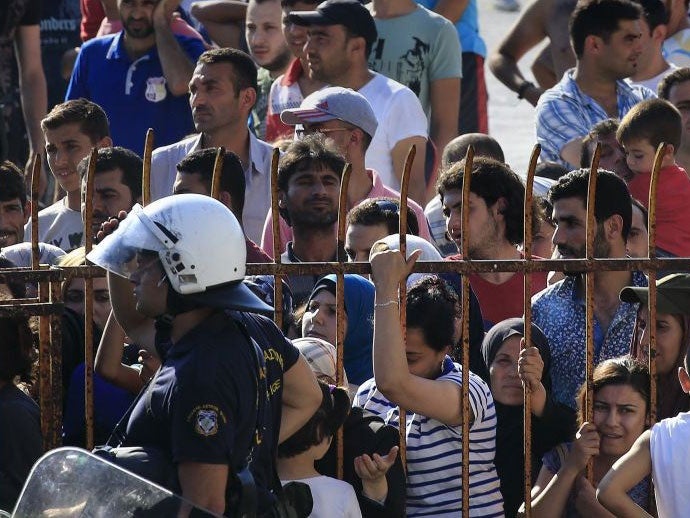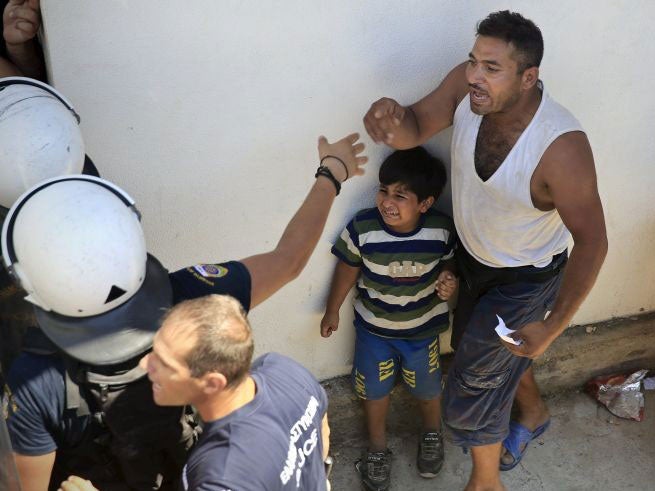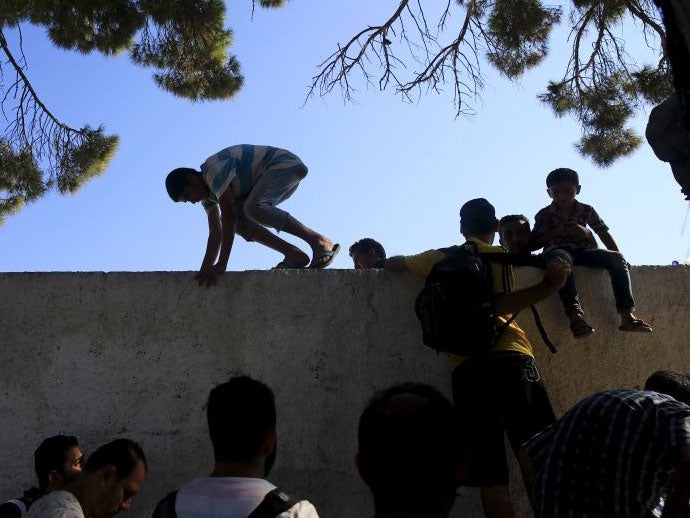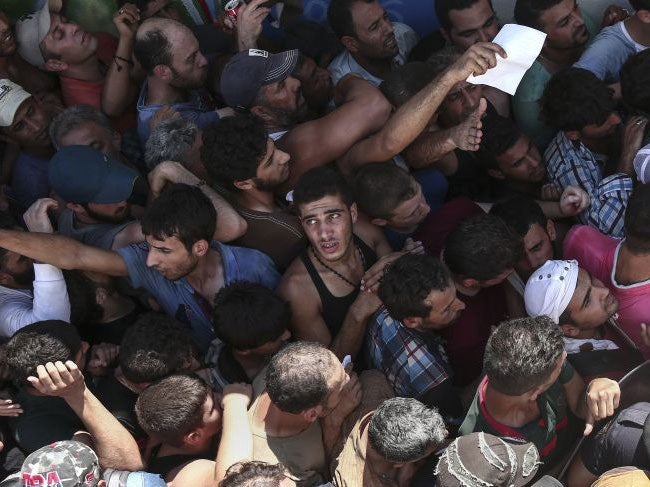Kos migrants 'locked inside stadium for 24 hours, beaten by police' and 'suffering panic attacks'
A medical charity said authorities' treatment of the men, women and children had degenerated from 'inaction to abuse' on the island

Your support helps us to tell the story
From reproductive rights to climate change to Big Tech, The Independent is on the ground when the story is developing. Whether it's investigating the financials of Elon Musk's pro-Trump PAC or producing our latest documentary, 'The A Word', which shines a light on the American women fighting for reproductive rights, we know how important it is to parse out the facts from the messaging.
At such a critical moment in US history, we need reporters on the ground. Your donation allows us to keep sending journalists to speak to both sides of the story.
The Independent is trusted by Americans across the entire political spectrum. And unlike many other quality news outlets, we choose not to lock Americans out of our reporting and analysis with paywalls. We believe quality journalism should be available to everyone, paid for by those who can afford it.
Your support makes all the difference.Greek police have locked migrants in a football stadium on Kos for over 24 hours, where dozens have been treated for panic attacks and a number have reported police beatings, as the situation continued to deteriorate.
Around a thousand men, women and children were given no food or water on the island, where they are waiting to be registered by authorities after arriving on boats from Turkey, according to Doctors Without Borders.
Medics with charity said they treated around 28 refugees fleeing Syria and other warzones for panic attacks after police threw stun grenades, which emit blinding flashes of light and deafening bangs, into the crowds on Wednesday.
Around 20 migrants also fainted from hunger, dehydration, lack of food and exhaustion in the 33C heat.
Hundreds of people were seen climbing the stadium’s 12-foot perimeter wall to go and buy food and one man was taken away in an ambulance after he fell and seriously injured his leg.
“What we see now is a completely disproportionate focus on security management of these people without the relative humanitarian assistance that they need,” MSF's Vangelis Orfanoudakis told the Associated Press.
“There are just two toilets, no access to water, they now have put a water hose for all the people. The situation is really dramatic.”
Police, who ordered the migrants into the stadium after clearing them out of makeshift camps in parks and other public spaces, had handed out around 300 travel documents by Wednesday afternoon.

Riot officers sprayed fire extinguishers and moved into the crowd with batons as anger mounted at the conditions and hours of waiting, with migrants chanting “we want papers, we want to eat” in a repeat of clashes seen on Tuesday.
A spokeswoman for the charity confirmed that around 28 migrants had been treated for panic attacks, and at least six had reported police beatings.
One police officer has been suspended from work on the island after allegedly slapping a Pakistani migrant and threatening him with a knife, local media reported.
“The situation here is very bad and police here they beat a boy, they beat a man, they beat children, it's too bad,” Syrian refugee Laith Saleh, who is in the stadium, said. “We can't go out.”

United Nations refugee agency the UNHCR has slammed the situation on Kos and other Greek islands as "total chaos", saying that it must offer food and shelter despite the ongoing economic crisis.
For many refugees, the conditions are still a vast improvement on what they left behind.
Dirar, an English graduate from Syria, said Kos was nothing compared to his hometown of Aleppo, which he called the “worst city in the world”.
“There's no electricity, no water, no internet,” he added. “My home was destroyed by a rocket blast. I was so happy to be alive.”

Most refugees say they are leaving economically-troubled Greece as soon as possible after gaining temporary travel papers to continue their trek through the Balkans and central Europe to wealthier countries.
Kos saw 7,000 migrants arrive last month and the number is expected to continue rising as smugglers, avoiding fighting in Libya and the deadly Mediterranean crossing, use alternative routes.
But authorities on the island have not provided any food or water since April, or opened reception centres like those set up across Italy to house arrivals until they can move on.
Brice de le Vingne, MSF’s Director of Operations, said the charity had been lobbying for basic facilities to be introduced for months and was “very worried” about the situation.
“What was previously a situation of state inaction is now one of state abuse, with police using increasing heavy handed force against these vulnerable people,” he added.
“The Kos authorities have clearly stated that they have no intention of improving the situation for these people as they believe that this would constitute a ‘pull factor’.
“But the truth is that people fleeing war will keep on coming whether or not the authorities are trying to stop them from doing so.”
Additional reporting by AP
Join our commenting forum
Join thought-provoking conversations, follow other Independent readers and see their replies
Comments